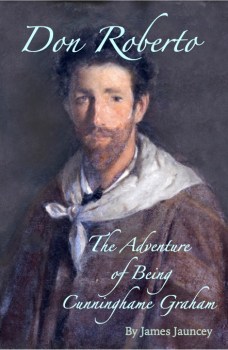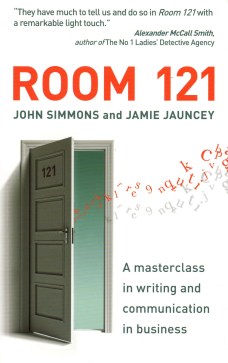You can now listen to each new post, including this one, as a podcast. I am also gradually adding selected posts from the archive. Click here.
If we look for milestones to prompt reflection and personal stocktaking, few come better than the turn of a decade. I was born towards the end of 1949, so my decades coincide neatly with those of the calendar. I am moving into my eighth decade as the world moves into the 2020s.
The idea of looking at one’s life in ten-year chunks might seem artificial. Most of the time it feels as if we’re simply progressing, more or less unevenly, from one year to another, in thrall to the annual cycle of seasons, events and anniversaries. But there are also larger patterns and longer, deeper pulses at play in our lives that we shouldn’t ignore.
The millennium was a turning point for me. Entering my fifties, the noughties were the decade when I broke loose of a great deal of what had constrained me in life up until then. I found the help I needed to shake off much of the conditioning of my upbringing, while coming to terms with some of its more difficult consequences, notably the effects of boarding school and my parents’ unexpected (to me, at any rate) divorce when I was nineteen.
Fifty This liberated me to make several important personal discoveries: my voice as a writer, my purpose as a teacher, a sense of community, and a reconnection with my musical roots.
Although I had published three novels in my forties—one for adults, one for young adults and one for children—it was only with two further young adult novels in my late fifties (The Witness, 2007 and The Reckoning, 2008) that I felt I was stepping into my skin as a writer and saying what I really wanted to say. Both books were shortlisted for awards. I’m still extremely proud of them and the way they were received.
Dark Angels meanwhile had come into being in 2004. Through my association with my fellow founders, John Simmons and Stuart Delves, I began to discover the rewards of communicating something about which I passionately believed, to others while helping them to discover their own potential in the process.
And with a move into the village where we live now, I experienced for the first time in my life all the many pleasures of living in a small, vibrant community. This, in turn, led directly to me finding my place within the much wider community of Scottish traditional music and musicians.
All of these things represented, through the decade of my fifties, a readiness and an eagerness to engage with the world in a wholly new and enriching way. It felt, during those years from 1999 to 2009, as if I was living fully and intently for the first time.
Sixty And so to the decade past. It’s closer and therefore less easy to assess, but it seems to me that this has been a time of consolidation; and the writing of this blog has been a crucially important part of that process, a constant thread throughout my sixties.
For the last ten years I’ve used it to figure out what I think about things, taking my cue from EM Forster’s observation: how do I know what I think till I see what I say? These public ruminations have helped me to become more integrated, more certain of myself. And it’s gratifying, if sometimes rather hard to comprehend, that other people seem ready to keep me company along the way.
In these last ten years I’ve also learnt increasingly to trust my instincts as a facilitator, through both Dark Angels and its associate programme in higher education, Invisible Grail; and through my more recent collaboration with Sarah in The Stories We Tell, where the combination of a therapeutic approach and creative expression helps people in their personal development.
I’ve worked intermittently, but with less urgency, on a sixth novel. It’s currently looking for a publisher—which it may or may not find. I’ve enjoyed a new musical partnership with my singer friend, Dave Amos, taking us back to the best of the sixties and seventies.
I’ve experienced a very late political awakening, partly in response to the Scottish independence referendum of 2014 and partly through my engagement with my politician and writer great-great uncle, the two things not unrelated. And the decade has been joyfully book-ended by the arrivals of my first and fourth grandchild.
Seventy If this sounds like a life of unalloyed fulfillment, it isn’t. There have been plenty of challenges and losses, upsets and mistakes and there will undoubtedly be more to come. But I enter my seventies with a feeling of calm, if also a sense of impending departure (though not my own, I hasten to say). In the first month of 2020 my daughter Anna leaves to take up residency in Canada. At the end of the month the United Kingdom leaves Europe. And the prospect of Scotland leaving the Union sometime in the near future has never been stronger.
I sense a shift in my energy, a gradual leaving behind of the younger me, the hunter who went out to put meat on the table for the family. Not that I’m losing energy—I would love to think I will still be writing and making music in my eighties, like one of those powerhouse octogenarian film directors or architects one reads about—but I notice that it has a more reflective, more contemplative quality as I embark on the most challenging project I’ve ever undertaken.
Making something fresh of the story of my great-great uncle, something that hasn’t been said about him before, while exploring how his life has intersected with my own, will summon everything I’ve learnt about the world so far. I couldn’t have begun this project a moment sooner.
As I struggle to conclude what I fear has become a rather long-winded and self-indulgent retrospective, I’m left with a sense of gratitude for all that those earlier decades may have placed at my disposal for the task ahead. This, it seems, is the decade when I try and make sense of it all. Further bulletins will follow …






Always, after reading your words Jamie, I’m left sighing with contentment. Keep rocking & rolling.
LikeLiked by 1 person
Thank you – as always – Therese! Rocking and rolling till I drop.
LikeLike
A lovely post, Jamie. Which I enjoyed further by hearing your voice for the first time.
As I consider dusting off my own novel, I was struck by this line: “I couldn’t have begun this project a moment sooner.” I do feel that some things need to await their moment.
Good luck with your continuing journey in the Twenties.
Angus
LikeLiked by 1 person
Agree with the comments above – an inspiring post and it’s lovely to hear your voice again. It’s a while since we met in a coffee shop at Ludgate Circus but the memory remains and I’ve enjoyed your blogs and insights since. Keep up the good work!
LikeLiked by 1 person
Thanks, Emma. I remember that cup of coffee well. I trust all is well in your world!
LikeLike
Thanks Angus. Good to hear from you and good luck with your dusting!
LikeLike
Jamie
A lovely post in these dark dog days of January.
I am sceptical too of “False or contrived” mandatory dates to reflect but your reflections do not seem either false or contrived.
I am at a bit of a crossroads and have made some recent decisions after much pondering. Not least I am about to confirm my Irish citizenship by acquiring a passport. I have never felt English so this feels good, even if promoted by the refusal to be “ evicted” from Europe.
I also have a new book project to lay down after living for a while with the concept and the opportunity to make it happen.
I also have a long dormant blog which I am thinking of reviving- love the Forster quote and his track record of long gaps between books.
Looking again at “ The Stories We Tell”
Always good to read your measured articles and they do make a difference in a very kind way.
Paul
LikeLiked by 1 person